
Jean Schwartz was a Hungarian-born Jewish American composer and pianist. He is best known for his work writing the scores for more than 30 Broadway musicals, and for his creation of more than 1,000 popular songs with the lyricist William Jerome. Schwartz and Jerome also performed together on the vaudeville stage in the United States; sometimes in collaboration with Maude Nugent, Jerome's wife, and the Dolly Sisters. Schwartz was married to Jenny Dolly from 1913-1921.
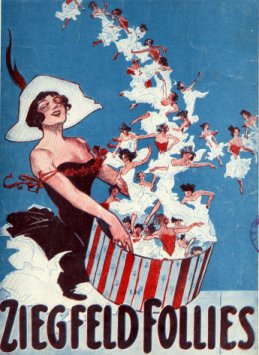
The Ziegfeld Follies were a series of elaborate theatrical revue productions on Broadway in New York City from 1907 to 1931, with renewals in 1934, 1936, 1943, and 1957. They became a radio program in 1932 and 1936 as The Ziegfeld Follies of the Air.
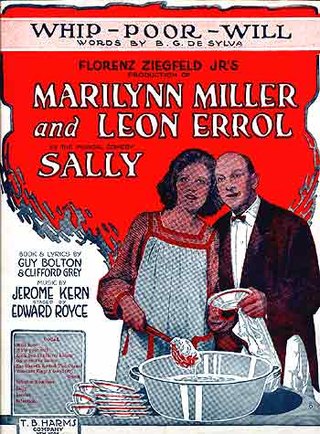
Sally is a musical comedy with music by Jerome Kern, lyrics by Clifford Grey and book by Guy Bolton, with additional lyrics by Buddy De Sylva, Anne Caldwell and P. G. Wodehouse. The plot hinges on a mistaken identity: Sally, a waif, is a dishwasher at the Alley Inn in New York City. She poses as a famous foreign ballerina and rises to fame through joining the Ziegfeld Follies. There is a rags to riches story, a ballet as a centrepiece, and a wedding as a finale. "Look for the Silver Lining" continues to be one of Kern's most familiar songs. The song is lampooned by another song, "Look for a Sky of Blue," in Rick Besoyan's satirical 1959 musical Little Mary Sunshine.

Marilyn Miller was one of the most popular Broadway musical stars of the 1920s and early 1930s. She was an accomplished tap dancer, singer and actress, and the combination of these talents endeared her to audiences. On stage, she usually played rags-to-riches Cinderella characters who lived happily ever after. Her enormous popularity and famed image were in distinct contrast to her personal life, which was marred by disappointment, tragedy, frequent illness, and ultimately her sudden death due to complications of nasal surgery at age 37.

Sam Bernard was an English-born American vaudeville comedian who also performed in musical theatre, comic opera and burlesque and appeared in a few silent films.

The Passing Show of 1918 is a Broadway musical revue featuring music of Sigmund Romberg and Jean Schwartz, with book and lyrics by Harold Atteridge. The show introduced the hit songs "I'm Forever Blowing Bubbles" and "Smiles".

John W. Steel was an American tenor. He was featured in the Ziegfeld Follies of 1919 and 1920 and Irving Berlin's Music Box Revues of 1922 and 1923.
Henry Martyn Blossom Jr. was an American writer, playwright, novelist, opera librettist, and lyricist. He first gained wide attention for his second novel, Checkers: A Hard Luck Story (1896), which was successfully adapted by Blossom into a 1903 Broadway play, Checkers. It was Blossom's first stage work and his first critical success in the theatre. The play in turn was adapted by others creatives into two silent films, one in 1913 and the other in 1919, and the play was the basis for the 1920 Broadway musical Honey Girl. Checkers was soon followed by Blossom's first critical success as a lyricist, the comic opera The Yankee Consul (1903), on which he collaborated with fellow Saint Louis resident and composer Alfred G. Robyn. This work was also adapted into a silent film in 1921. He later collaborated with Robyn again; writing the book and lyrics for their 1912 musical All for the Ladies.

Very Good Eddie is a musical with a book by Guy Bolton and Philip Bartholomae, music by Jerome Kern, and lyrics by Schuyler Greene, with additional lyrics by Elsie Janis, Herbert Reynolds, Harry B. Smith, John E. Hazzard, Ring Lardner and Jerome Kern, and additional music by Henry Kailimai. The story was based on the farce Over Night by Bartholomae. The farcical plot concerns three couples and a sex-crazed voice teacher who board a Hudson River Day Line boat in Poughkeepsie, New York. Chaos ensues when two of the couples cross paths and accidentally trade partners. The vaudeville-style adventure continues at a hotel, where guests pop in and out of rooms while an inebriated desk clerk tries to sort through the madness.
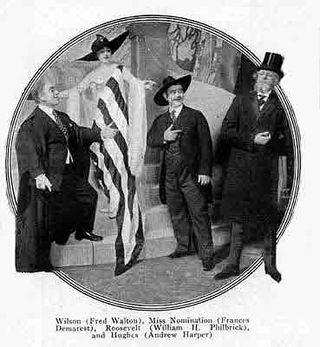
The Passing Show of 1916 is a revue featuring the music of Sigmund Romberg and Otto Motzan, with book and lyrics by Harold Atteridge. It included the first George Gershwin songs introduced in a Broadway show.

Joseph Morris Weber was an American vaudeville performer who, along with Lew Fields, formed the comedy double-act of Weber and Fields.
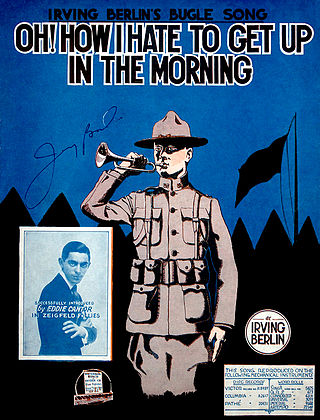
"Oh! How I Hate to Get Up in the Morning" is a song written by Irving Berlin in 1918 that gives a comic perspective on military life. Berlin composed the song as an expression of protest against the indignities of Army routine shortly after being drafted into the United States Army in 1918. The song soon made the rounds of camp and became popular with other soldiers, partly because hatred of reveille was universal.

J. Harold Murray was an American baritone singer and actor. For more than a decade, during the Roaring Twenties and the Depression Thirties, he contributed to the development of musical theater by bridging vaudeville, operetta and the modern American musical. The most popular American songs he introduced on Broadway included "Autumn in New York" ; "Let's Have Another Cup of Coffee" and "Soft Lights and Sweet Music" ; "Rio Rita", "The Kinkajou" and "The Rangers Song" ; and "Mandalay".

Michael Elder Rourke, who assumed the pen name Herbert Reynolds in 1913, was an Irish-American lyricist. Reynolds wrote the lyrics to Jerome Kern's first big hit, "They Didn't Believe Me", interpolated into the 1914 American version of The Girl from Utah, produced by Charles Frohman. The show had a successful run of 140 performances at the Knickerbocker Theatre, opening on August 14, 1914. Frohman had hired the young Kern to write five new songs for the score together with Reynolds to strengthen what he felt was a weak first act. Julia Sanderson and Donald Brian starred in the production.
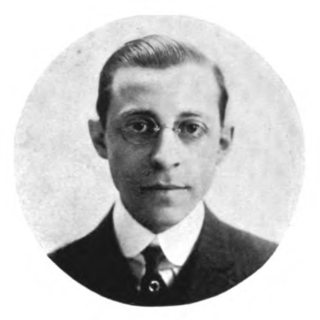
David Stamper was an American songwriter of the Tin Pan Alley and vaudeville eras, a contributor to twenty-one editions of the Ziegfeld Follies, writer for the Fox Film Corporation, and composer of more than one thousand songs, in spite of never learning to read or write traditional music notation. He may have written "Shine On Harvest Moon", a claim supported by vaudeville performer and writer Eddie Cantor. He was also a charter member of the American Society of Composers, Authors and Publishers or ASCAP.
Miss 1917 is a musical revue with a book by Guy Bolton and P. G. Wodehouse, music by Victor Herbert, Jerome Kern and others, and lyrics by Harry B. Smith, Otto Harbach, Henry Blossom and others. Made up of a string of vignettes, the show features songs from such musicals as The Wizard of Oz, Three Twins, Babes in Toyland, Ziegfeld Follies and The Belle of New York.

"A Pretty Girl Is Like A Melody" is a popular song written by Irving Berlin in 1919 which became the theme song of the Ziegfeld Follies. The first verse and refrain are considered part of the Great American Songbook and are often covered as a jazz standard.

John Lionel Golden was an American actor, songwriter, author, and theatrical producer. As a songwriter, he is best-known as lyricist for "Poor Butterfly" (1916). He produced many Broadway shows and four films.

Robert North was an American vaudeville performer who became a success as a stand-up comedian. Later he became a prolific motion picture producer.

Development of musical theatre refers to the historical development of theatrical performance combined with music that culminated in the integrated form of modern musical theatre that combines songs, spoken dialogue, acting and dance. Although music has been a part of dramatic presentations since ancient times, modern Western musical theatre developed from several lines of antecedents that evolved over several centuries through the 18th century when the Ballad Opera and pantomime emerged in England and its colonies as the most popular forms of musical entertainment.


















